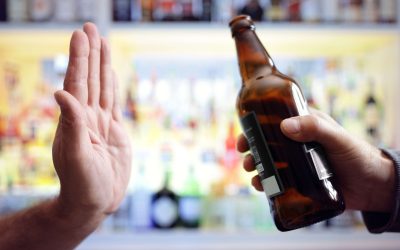Finally, the substantial amounts of fiber in cruciferous vegetables can keep you regular, improve your gut health, and help you regulate your blood sugar levels. Opiate and heroin use can be linked to nausea and vomiting, serious organ damage over time, and general neglect of one’s health, potentially leading to nutritional deficiencies. Adopting a balanced diet can assist the body in healing and recovering from the damage inflicted by long-term alcohol abuse. The digestive system not only requires a mixture of proteins, vitamins and minerals to keep us healthy but it also needs fiber to keep everything moving as it should.
You may feel fatigued or toxified, struggle with food cravings, or not feel like eating much at all. And if you established unhealthy eating habits while drinking alcohol, they may suddenly be very obvious. A good diet can help promote improved energy and enhance the body’s ability to respond to physical stress during recovery. Your diet can also impact neurotransmitter levels and function and gut bacteria. Magnesium can help reduce alcohol cravings and improve sleep quality, both common problems during alcohol withdrawal.
Whole Grains
Lean meats and poultry are great sources for those who choose to eat meat, but for those who don’t or would prefer to limit intake, nuts, seeds and tofu can be excellent substitutes. Vegetables are packed with critical vitamins and nutrients, so getting plenty of leafy greens is always encouraged. Vegetables don’t have to be boring — with sauces, dressings and creative preparation methods like roasting, you can turn what seems like something bland and boring into a delicious meal. When you drink, the alcohol suppresses your brain’s production of a chemical called antidiuretic hormone, or ADH.
- Certain health problems like heart disease can impact how much water you can safely drink.
- Those who are unable to physically and psychologically endure alcohol withdrawal often resume drinking shortly after quitting.
- As addiction escalates, regular meals fall by the wayside, with home cooking and healthy choices replaced by fast food, soda and fattening snacks.
Avoid heavily caffeinated beverages like coffee, sodas, and dark teas, since these drinks may worsen dehydration when going through alcohol withdrawal. Bright, colorful fruits and vegetables like red and yellow peppers, blueberries, and oranges are high in carotenoids — pigments that give these foods their vibrant hues. Carotenoids act as antioxidants that fight free radicals, including alcohol toxins. A diet high in colorful fruits and veggies can flush alcohol from your body more quickly, and provide you with countless nutrients that can accelerate your recovery. Capsaicin stimulates the release of endorphins – compounds that provide feelings of happiness. It also helps with the withdrawal symptoms that come with quitting drinking such as nausea.
Importance of Fruits and Vegetables
Many people find that they can’t resist the craving for something sweet. However, there are plenty of healthy snack options that will best serve your needs while in early recovery. While it is important to pay attention to what types of foods you can and cannot eat, some foods contain a lot of good things that help your body heal. As always, if you are unsure about whether or not you will have an allergy issue with a certain food, consult with your doctor. Periodic fasting, which consists of fasting for 24-hour periods a couple of times during each week, can mean autophagy occurs at around the 18-hour mark. Periodic fasting also speeds up the process of restoring amino acids.
I’ve gotten away with them easily, despite weighing over 250 pounds before I quit drinking. My goal is to live life fully, not to feel deprived and have a 6-pack at all times. Chocolate cake tastes a lot better when you only eat it once per week. The first piece of good news alcohol recovery diet here is that the human body has a remarkable ability to heal from prolonged alcohol consumption. Unless you’ve been diagnosed with severe brain damage (likely due to vitamin B1 deficiency) or alcoholic cirrhosis, the odds of healing your brain-body system are in your favor.
Improve Your Recovery Journey Today
According to the National Survey on Drug Use and Health, 9.2 million U.S. adults had both mental health disorders and a substance use disorder in 2018, yet nearly 60% did not get treatment. This typically occurs after five or more drinks for men and four or more drinks for women. Eating junk food can cause a host of health problems, including weight gain, high cholesterol, high blood pressure, depression, heart disease, stroke and Type 2 diabetes. Unfortunately, the most important foods to avoid when overcoming withdrawal symptoms are greasy, fatty food and too much sugar.


